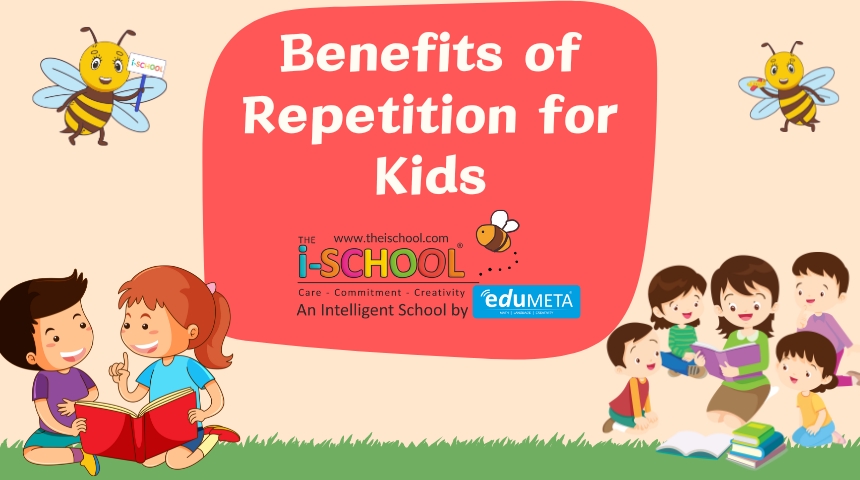Benefits of Repetition for Kids

Repetition is often considered the cornerstone of effective learning, especially for young children. By encountering the same material multiple times, children can deepen their understanding, reinforce their memory, and build confidence in their abilities. Here are the key benefits of repetition for kids:
1. Strengthens Memory and Recall
Repetition plays a crucial role in enhancing memory. When children are exposed to information repeatedly, it helps to solidify the content in their long-term memory. This process of reinforcing memory through repetition makes it easier for kids to recall information when needed. Whether it’s learning the alphabet, multiplication tables, or a new language, repeated exposure ensures that the information sticks.
2. Builds Confidence
Repeated practice of skills and concepts boosts children’s confidence. As they become more familiar with the material, they gain a sense of mastery and competence. This increased confidence encourages them to tackle new challenges and persevere through difficult tasks. For example, a child who regularly practices reading will become more confident in their ability to read aloud and comprehend new texts.
3. Enhances Skill Development
Repetition is essential for developing and honing skills. Activities such as writing, playing a musical instrument, or engaging in sports require repeated practice to achieve proficiency. By consistently practicing these skills, children improve their technique, precision, and overall performance. This continuous practice helps them transition from basic understanding to advanced mastery.
4. Promotes Consistency and Routine
Incorporating repetition into daily routines provides structure and consistency for children. Routines help children understand what to expect and reduce anxiety about new experiences. For instance, a bedtime routine that includes reading a story every night helps children associate reading with relaxation and prepares them for sleep. Consistent routines also teach children time management and organizational skills.
5. Facilitates Language Acquisition
Repetition is a fundamental aspect of language development. When children hear and use words and phrases repeatedly, they become more familiar with their meanings and usage. This familiarity aids in vocabulary expansion and language comprehension. Singing songs, reading books, and engaging in conversations are all effective ways to incorporate repetition into language learning.
6. Reinforces Positive Behaviors
Repetition is a powerful tool for reinforcing positive behaviors and habits. When children consistently receive praise and rewards for good behavior, they are more likely to repeat those actions. For example, consistently acknowledging a child’s efforts in sharing or cooperating with others reinforces those behaviors and encourages them to continue.
7. Supports Cognitive Development
Repeated exposure to concepts and activities stimulates cognitive development. Engaging in repetitive activities such as puzzles, memory games, and pattern recognition exercises strengthens cognitive skills like problem-solving, logical thinking, and spatial awareness. These activities challenge children’s minds and promote mental agility.
8. Aids in Mastery of Academic Subjects
Repetition is crucial for mastering academic subjects. Regular review and practice of subjects like math, science, and reading help children consolidate their knowledge and understanding. Repeated exposure to concepts ensures that children can apply what they have learned in different contexts and scenarios, enhancing their overall academic performance.
9. Encourages Independent Learning
When children repeatedly engage with learning materials, they become more independent in their studies. They develop the ability to review and practice on their own, fostering a sense of responsibility for their learning. This independence prepares them for future academic challenges and promotes lifelong learning habits.
Conclusion
Repetition is a powerful and effective tool in children’s learning and development. It strengthens memory, builds confidence, enhances skill development, and promotes consistency. By incorporating repetition into daily routines and educational activities, parents and educators can support children in mastering new skills, reinforcing positive behaviors, and fostering a love for learning. Embracing the benefits of repetition ensures that children are well-equipped to succeed both academically and personally. At eduMETA THE i-SCHOOL, we understand the importance of repetition and strive to create engaging and effective learning experiences that help children thrive.
